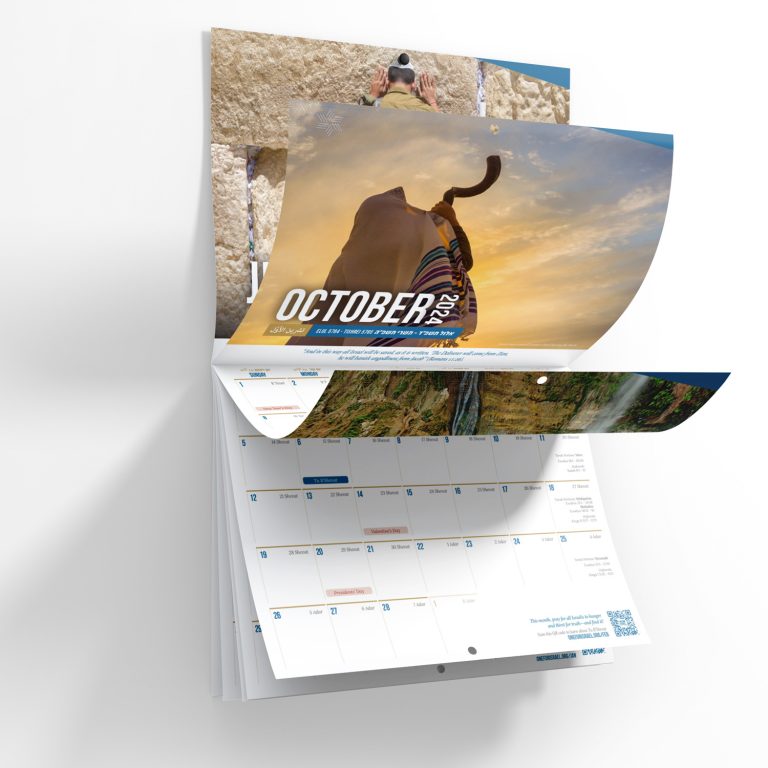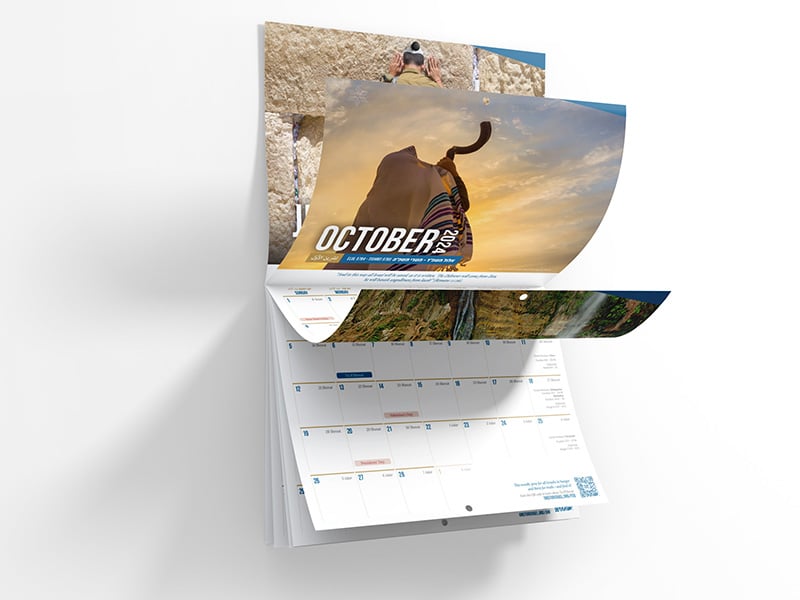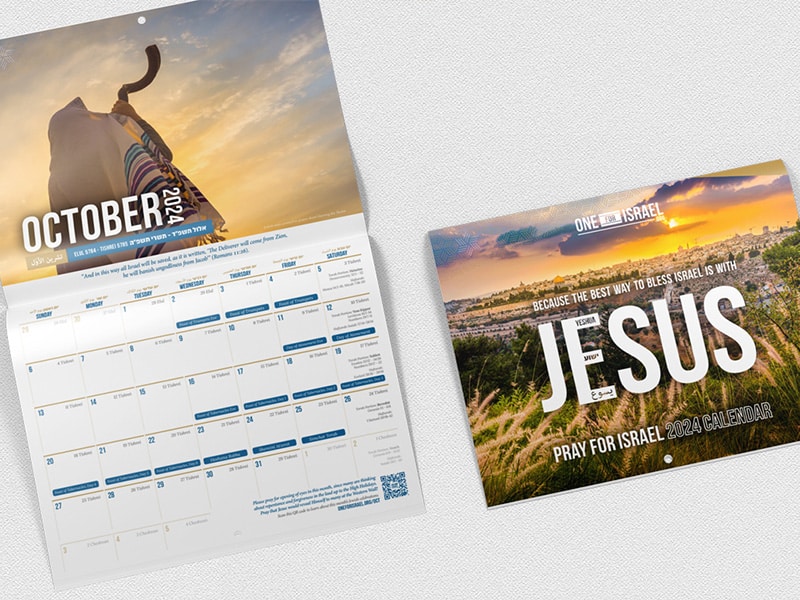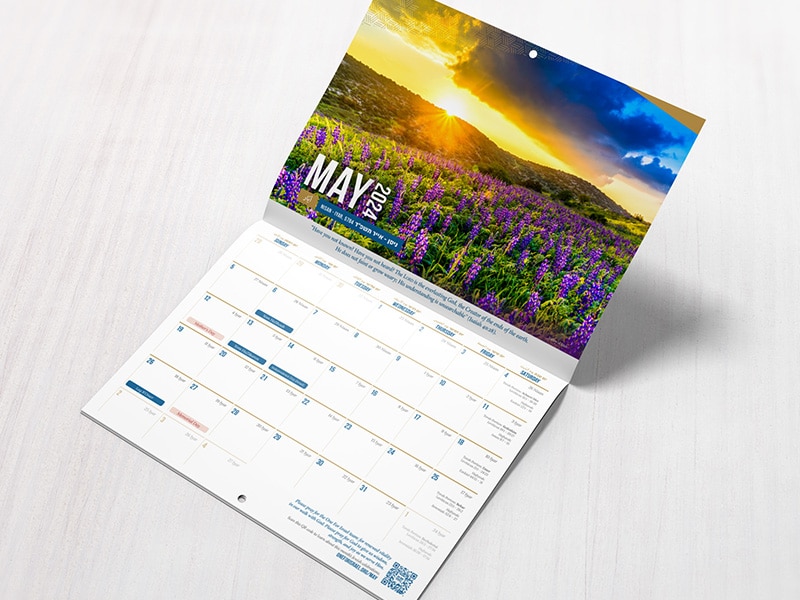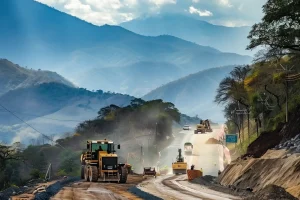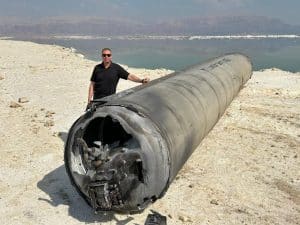Way back in the time of Moses, God told the people of Israel that he had already chosen a place for his dwelling place in the Promised Land, mount Moriah, long before they'd even got there:
“You are to seek only the place Adonai your God chooses from all your tribes to put His Name to dwell—there you will come.” (Deuteronomy 12:5)
Mount Moriah – Why that spot was chosen
The location is not specified at that point, but God had decided where it would be way before the Israelites got to Canaan. With hindsight, we can see God had put his prophetic mark on his spot back in Genesis 22: it was the place where God told Abraham he was to sacrifice Isaac – Mount Moriah. The mount of God's bitterness.
So how did the Israelites know which place God had in mind?
It all began when David was in dire straits – a plague had broken out against Israel, and there was only one way to stop it:
So Adonai sent a pestilence upon Israel from the morning until the appointed time, so that 70,000 men of the people died from Dan to Beersheba. When the angel stretched out his hand toward Jerusalem to destroy it, Adonai relented from the calamity and said to the angel who was destroying the people, “Enough! Now withdraw your hand.” The angel of Adonai was then by the threshing floor of Araunah the Jebusite.” (2 Samuel 24:15-16)
”So David bought the threshing floor and the oxen for 50 shekels of silver. Then David built there an altar to Adonai, and offered burnt offerings and fellowship offerings. So Adonai was moved by prayer of entreaty for the land, and restrained the plague from Israel. (2 Samuel 24:18-25)
King David bought that land fair and square, under the instruction of God, and it was on that site the first temple was built (Mount Moriah). And then after that, the second one. And today, the Dome of the Rock stands in its place.
The significance of threshing
The context of King David's initiative to purchase that threshing floor was the need to stop the Angel of Death, who was exacting the punishment for sin. As believers this link makes sense – it's the cosmic place of God's victory over sin and where the power of death was stayed. But what has threshing got to do with it?
Threshing is essentially dividing – separating the wheat from the chaff.
Threshing floors crop up (excuse the pun) a number of times throughout scripture, and there's something in this agricultural process that God is wanting us to think about.
The threshing theme is woven throughout the Bible, and in Jewish thought. How does the book of Psalms start? With a song contrasting the righteous with the wicked using the analogy of a well watered-tree versus chaff. It begins with the phrase, “blessed is the man” – much like Yeshua's beatitudes in his sermon on the mount – blessed is he who does not join with sinners, but who meditates on God's word:
He will be like a planted tree over streams of water,
producing its fruit during its season.
Its leaf never droops—but in all he does, he succeeds.
The wicked are not so.
For they are like chaff that the wind blows away.
Therefore the wicked will not stand during the judgment,
nor sinners in the congregation of the righteous. (vv.3-5)
Different destinies for the righteous and the unrighteous
Malachi, the last prophet, ends his book with the same picture:
“Then you will return and distinguish between the righteous and the wicked, between one who serves God and one who does not serve Him.”
“For behold, the day is coming—it will burn like a furnace—when all the proud and every evildoer will become stubble. The day that is coming will set them ablaze”—says Adonai-Tzva’ot—“leaving them neither root nor branch.” (Malachi 3:18-19)
John the Baptist appears to pick up right where Malachi left off! He is telling the people of Judea about the Messiah:
“His winnowing fork is in His hand, and He shall clear His threshing floor and gather His wheat into the barn; but the chaff He shall burn up with inextinguishable fire.”
This is not the picture many like to have of Yeshua, but this is who he is.
Yeshua's sovereign right to thresh
We need, as Paul says, to consider the kindness and the severity of God. The motif of sifting the wheat from the chaff reappears in the last supper. Yeshua turns to Peter, the one on whom he was counting to feed his sheep, and says:
“Simon, Simon, behold, Satan has demanded permission to sift you like wheat; but I have prayed for you, that your faith may not fail.” (Luke 22:31-32)
We have an enemy who seeks our destruction. But more wonderfully, we have the Messiah himself on our side! Yeshua is rooting for us, interceding for us, and is our ever present help in times of trouble.
Yeshua came as the suffering servant, he paid for our sin out of the purest most selfless love the universe has ever known. He has extended grace upon grace, and made a way open to the Father – while we were still sinners. As someone once said, the gospel is the only story in which the hero dies for the villain! Jesus didn't only die for sinful Christians, but also for Muslims, for Hindus, atheists, witches, Buddhists, for those in the LGBTQ community (and any other letters I've missed out), the butcher, the baker, the candlestick maker… absolutely anyone who repents of their sin and believes on his name is welcomed into the Kingdom. The sacrifice of God's own Son on mount Moriah, the shed blood of Yeshua the Messiah, is mighty to save.
But our window of opportunity to accept this amazing grace is not eternal. Judgement Day will surely come, as he graciously warns us. And the righteous judgement of Jesus is a good thing, as the songs in the book of Revelation declare. Finally evil is finished and dealt with forever.
Therefore just as the weeds are gathered up and burned with fire, so shall it be at the end of the age. The Son of Man will send forth His angels, and they will gather out of His kingdom all stumbling blocks and those who practice lawlessness. They will throw them into the fiery furnace; in that place will be weeping and gnashing of teeth. Then the righteous will shine forth as the sun in the kingdom of their Father. He who has ears, let him hear! (Matthew 13:40-43)
Of the increase of His government
and shalom there will be no end—
on the throne of David and over His kingdom—
to establish it and uphold it
through justice and righteousness
from now until forevermore.
The zeal of Adonai-Tzva’ot
will accomplish this. (Isaiah 9:6)

